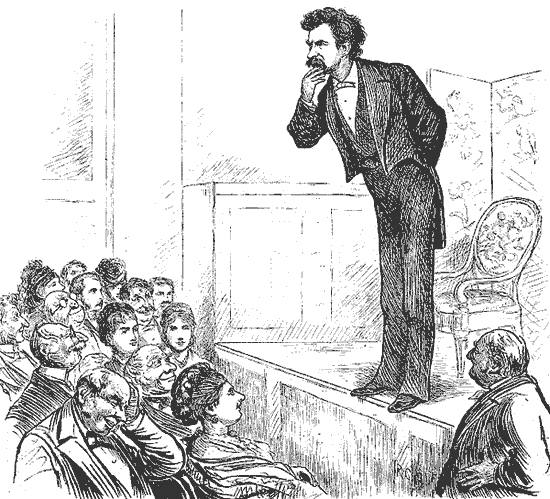
Yesterday, I talked a little bit about that grand old tradition, the writers’ group, a mutual aid society devoted to helping its members refine and improve their writing. While surprisingly few established writers’ groups deal explicitly with the marketing side of being a successful writer — I have never understood, for instance, why so few groups of writers at the querying stage exchange queries and synopses for critique; it seems like a natural — a good writers’ group can be extremely helpful in providing the feedback that every serious writer needs.
As those of you who have been reading this blog for a good, long time may have noticed, I suggest joining a writers’ group every time I revisit the issue of getting useful feedback. Not only does it tend to be more efficient to exchange chapters with many than with just one or two, and not only does one often glean more constructive feedback from writers than from readers who have never tried to cobble a narrative together, but let’s face it, getting involved with even a group that charges for membership (as some run by well-known authors and/or editors do) is probably going to be less expensive than hiring an experienced freelance editor.
On the other hand, a freelance editor will almost certainly be able to give you that feedback considerably faster — and, if s/he’s worth her salt, be able to provide you with greater insight into how agents, editors at publishing houses, and contest judges might respond to your work. While you might eventually accumulate a similar volume of feedback from regular group participation, if you’re meeting only once per month and exchanging only one chapter each time, it could take two or three years to make it through an entire manuscript.
And that’s assuming that the group is small enough that every member receives critique every single time. While we’re engaging in cost/benefit analysis, let’s not forget to count the time and energy a conscientious group member must invest in reading and commenting upon other members’ work.
Because of the substantial and long-term commitment required to run a full manuscript through a writers’ group and potentially rather hefty price tag on professional editing, many aspiring writers turn to a third option: seeking out feedback online, either by seeking out other writers for exchange via a bulletin board, chat room, or website or by taking advantage of one of the many websites that ask writers to post excerpts of their writing online for other readers to critique.
Heck, I have it on pretty good authority that some of my frequent commenters here have ended up swapping manuscripts. After all, they already know that they have something in common, right?
As marvelous as these online exchange opportunities can be for writers, especially ones who are geographically isolated enough to render joining an in-person writers’ group impracticable, I wanted to pause in the middle of this series on feedback to address some concerns about the dangers that can result from all of that electronic manuscript exchange. Writers new to this form of community often do not prepare themselves for the possibility that the nifty writer they’ve never met face-to-face but who sounds like a perfect critique partner might not be, well, completely on the up-and-up.
Oh, and happy Friday the 13th.
To put it another way that makes me sound much more like your mother: just as not every online dater is completely honest about his or her intentions, willingness to commit, height, weight, level of baldness, or marital status, not every writer participating in online communities is representing her- or himself accurately. And it’s equally hard in both venues to weed out the boasters from the hard workers.
How might an inability to tell one from the other harm an honest feedback-seeking writer? Well, in a lot of ways, unfortunately, ranging from investing hours and hours in providing critique for an exchange partner who never bothers to reciprocate to getting one’s writing actually stolen.
So for the next few days, we’re going to veer off my pre-set path of feedback-seeking to talk about what the risks are and how a savvy writer can minimize them.
One vital disclaimer before I begin: I am NOT an attorney, much less one who specializes in intellectual property law. So it would be a GRAVE MISTAKE to take what I say here as the only word on the subject, or indeed to come to me if you believe that your writing has been stolen. (And if you did, I would send you straight to my lawyer, so why not skip a step?)
However, I’ve noticed that most of the time, writers curious about this seem to be asking questions not because they fear that their intellectual property has been lifted or that they’ve violated someone else’s rights, but because they’ve heard vague rumors to the effect that every so often, an unpublished writer’s work has gotten stolen. And those pervasive rumors I can legitimately address.
To set your minds at ease: yes, writing does occasionally get stolen — but it’s exceedingly rare, and it usually doesn’t happen in the way that most hearers of the rumor fear.
Let me introduce Sharon (not her real name, obviously), a writer who approached me a few years ago. I had the impression that she hadn’t been writing very long, but I wasn’t positive, as she was someone I barely knew — the on-again, off-again girlfriend of the brother of a friend of mine, which is as fine a definition of a casual acquaintance as I’ve ever heard. And yet she called me one day, full of questions about how to market her writing.
(A practice that I have historically tended to discourage in aspiring writers with whom I do not already enjoy some sort of professional relationship, incidentally, since effectively, it’s a consultant-client situation, and I do after all donate masses of general information to the writing community here on this blog. I understand the urge to chat with an experienced author and editor about the specifics of one’s book, however. Due to a precipitous rise in requests of this nature in recent months, I shall be unveiling a new venue for one-on-one consultation within a few weeks. So get those manuscript-specific questions ready and watch this space.)
Sharon had written a short piece — an essay, really — that she thought was marketable and had, through sheer persistence and the rare strategy of actually LISTENING to the advice she had been given by published writers of her acquaintance, gotten Ron, the publisher of a small press, to agree to take a preliminary look at it. Would she e-mail it to him with all possible dispatch, please?
In mid-celebration for this quite significant coup, she experienced a qualm: what if this guy stole her ideas, or her entire work? She knew him only through an exchange of e-mails, after all, and until she had started trolling the Internet for small presses, she had never even heard of him or his publications.
So wasn’t she in fact taking a rather large risk in sending an electronic copy of the only thing she’d ever written to a complete stranger?
Once the idea had taken hold in her brain, being a writer, she naturally embellished upon it in the dead of night: if it came down to Ron’s word against hers, who would believe {her}? And how could she ever prove that she had come up with the idea first?
When she shared her fears, however, half of her friends laughed at her, saying that she was being paranoid and unreasonable. The other half told her, in all seriousness, that she should go ahead and register the copyright for what she had written before she e-mailed it to Ron. At the very least, they advised, she should tart up her pages by adding the copyright symbol (©) on each and every one. Whereupon the first set of friends laughed even harder and told her that nothing looks more unprofessional to folks in the publishing industry than the liberal application of that pesky ©.
Understandably confused, Sharon did something very sensible: she tracked down the closest professional author and asked her what to do.
(As Gore Vidal is fond of saying, there is no earthly problem that could not be solved if only everyone would do exactly as I advise. I trust all of you will cling to that inspiring little axiom until your dying breath.)
The problem was, each set of Sharon’s friends was partially right: the vast majority of reputable publishing houses would never dream of stealing her material, and yet, as in any other business, there are always a few cads. At most writers’ conferences, you will hear speakers scoff at the possibility, but anyone who has been in the writing and editing biz for any length of time knows at least one good writer with a horror story.
Better safe than sorry, as our great-grandmothers used to stitch painstakingly onto samplers. (Actually, my great-grandmother was an opera diva who apparently regarded needlework as a serious waste of the time she could be spending being flamboyant, but I’m told that other people’s great-grandmothers embroidered such things.)
In the United States, though, outright theft of a book, or even an essay or short story, is quite rare. To wave the flag for a moment, we have the strongest copyright laws in the world, and what’s more, a writer on our turf AUTOMATICALLY owns the copyright to his own work as soon as he produces it. (Seriously; go ask a lawyer.)
So when writers talk about copyrighting a book, they’re generally not talking about obtaining the right in the first place, but rather registering it with the U.S. Copyright Office.
Which means that the friends who advised Sharon not to mar her footer with © 2008 Sharon were also partially correct: the writer owns the copyright; if Ron planned to steal her essay and she hadn’t actually registered the copyright on it, the symbol alone wasn’t going to provide much protection. In fact, her friends were passing along the prevailing wisdom she would have heard had she asked the same question at your garden-variety writers’ conference: presenters often tell aspiring writers not to use the © bug on their manuscripts when they submit them; it’s redundant.
How so? Well, everyone in the publishing industry is already aware that the author owns the copyright to her own writing — including, presumably, Ron. If the author didn’t own the copyright, a publisher wouldn’t have to sign a contract with her in order to publish it, right?
In theory, then, writers are protected from pretty much the instant that their fingers hit the keyboard. So was Sharon’s other set of advisors merely ill-informed?
Unfortunately, no: in practice, a couple of problems can arise. Rights, as Thomas Hobbes informed us so long ago, are the ability to enforce them.
In the first place, owning the rights to what you write inherently and proving that you are the original author are two different things — sometimes radically different. Occasionally, some enterprising soul will latch on to another writer’s unpublished work and claim that he wrote it first, or co-writers will squabble over who gets custody of already-written work in a partnership break-up. Or, as in the situation I raised at the beginning of this post, an aspiring writer who has trustingly e-mailed his first two chapters to that nice writer he met on a bulletin board walks into a bookstore one day and finds a book that opens just like his.
Or — and this is substantially more common, especially in academic writing — the writer is dutifully reading her former exchange partner’s published work when her hair stands on end because that paragraph on the page in front of her is one that she wrote. With a shock, it suddenly occurs to her that since they exchanged work electronically, all her dishonest ex-friend would have had to do was copy her words and paste them into another manuscript.
In each case, the inevitable result is an unseemly struggle to determine who coughed up any given page of text first — or an aspiring writer who spends the next ten years walking around grumbling to anyone who will listen about how that rat of a published writer stole her work.
Second — and you might want to be sitting down for this one, as it comes as rather a shock to a lot of writers — technically, you can’t copyright an idea; you can merely copyright the PRESENTATION of it. Which means, in practice, that it is not possible to claim ownership of your storyline, but only how you chose to write it.
Aren’t you glad I told you to sit down first?
Learning about this second condition tends to obviate a good 85% of the concerns aspiring writers express about having their work stolen. Most of the time, writers are worried that someone will steal their STORIES, not the actual writing — and I’m not going to lie to you; one doesn’t have to attend many writers’ conference before one has heard a dozen stories about the trusted feedback-giver who later came out with a suspiciously similar book.
There’s not a heck of a lot a writer can do about that, alas, except to spread the story around. So the next time you hear such a tale of woe at a conference, do remember to make sympathetic noises.
But by the same token, unless the lifted plotline becomes a major bestseller, there’s really no reason that you shouldn’t push ahead with your version. Fiction is virtually never sold on the storyline alone, anyway; plotlines and NF arguments are almost never 100% unique.
As no one knows better than a writer, however, presentation — particularly GOOD presentation — generally IS unique. As industry insiders are so fond of telling writers, it all depends upon the writing.
This is why, as some of you inveterate conference-goers may have noticed, when agents, editors, and published writers are presented with a question about book theft, they tend to respond as though the question itself were a sign of an over-large ego in the asker. Just how revolutionary would an aspiring writer’s style have to be, the logic goes, for an agent or editor to WANT to steal it?
Which perhaps leaves the wondering writer reluctant to submit his long thought-out plotline and terrific premise to a publisher, lest it be handed to a better-known writer, but doesn’t really address his concern. Once again, we have a failure to communicate.
Do I see some hands in the air out there? “But Anne,” I hear some of you protesting, and rightly so, “between the time I submit a manuscript to an agency and the time a book is published and thus equipped with a nice, clear copyright page stating precisely who owns the writing between those covers, it passes through quite a few hands. I may not even know who will end up reading it. Shouldn’t I worry about some of them deciding to make off with my actual pages and passing them off as their own?”
Having some doubts about Millicent’s integrity, are we?
Well, it’s a reasonable enough concern: some of those hands will inevitably belong to people you do not know very well. Agency screeners like Millicent, for instance. Agents. Editorial assistants. Editors. Mail room clerks. The people in the publishing house’s marketing department.
And anyone to whom you give your manuscript as a first reader. Guess which paragraph contains the most likely thief of prose?
If you said the latter, give yourself a big, fat gold star for the day; I’ll be discussing casual exchanges in tomorrow’s post. But let’s think for a moment about why manuscripts sent to agencies and publishing houses very, very rarely turn up with anyone other than the author’s name on the title page.
An exceedingly straightforward reason springs to mind: agencies and publishing houses make their livings by selling work by writers. In-house theft wouldn’t have to happen awfully often before writers would stop sending submissions, right? So sheer self-interest would tend to discourage it.
But I’m not going to lie to you: at a less-than-reputable house or agency, it could happen. And occasionally does, especially to NF book proposals. Any guesses why?
If you immediately answered, “Because you can’t copyright an idea, only the presentation of it,” give yourself another gold star. While the copyright of the proposal materials and any sample chapter(s) undoubtedly belongs to the person who wrote them, it’s not unheard-of another writer to snatch the proposal, rewrite it minimally, and submit it as his own work.
I know: chilling.
The single best thing you can do to protect yourself is to deal with reputable agents, editors, and publishing houses. Not only are well-established folks less likely to engage in dubious practices in the first place (this is, after all, a biz that relies heavily upon reputation), but there’s often a better-established chain of accountability if something goes wrong. As I MAY have mentioned before on this blog, it behooves a writer to do his homework.
And at the risk of sounding like your mother again, let me remind you: not every organization with the wherewithal to throw up a website is equally credible.
Actually, it’s not a bad idea to check anyone in the industry with whom you’re planning to do business on Preditors and Editors; if you have doubts about an individual agent, agency, or publishing house, check agents out with the AAR (Association of Authors’ Representatives). These are also good places to report any professional conduct that seems questionable to you; P&E is especially good about following up on writers’ complaints.
I always advise doing a basic credibility check before sending ANY part of your manuscript via e-mail — which clearly includes anyone to whom you might be considering trading manuscripts for critique. As I’ve mentioned several times before here, after you send out an e-mailed attachment (or any e-mail, for that matter), you have absolutely NO way of controlling, or even knowing, where it will end up.
Think about it: part of the charm of electronic communication is ease of forwarding, right? Yet another reason that I’m not crazy about e-mailed submissions. (The other reason, if you must know, is that it’s far, far quicker for Millicent to reject an electronic submission than a physical manuscript. Since rejecting the former requires the push of a single button and rejecting the latter involves stuffing pages into an envelope, which would you guess renders it more tempting not to read much before deciding?)
While it’s highly unlikely that the chapter you e-mail to an agent — or that person you just met on an Internet chat room — will end up on a printing press in Belize or Outer Mongolia, it’s not entirely unprecedented for entire e-mailed manuscripts to wander to some fairly surprising places. Yes, the same thing COULD conceivably happen with a hard copy, too, but as with Millicent’s rejection, it would require more effort on the sender’s part.
Which, believe it or not, is part of the function of the SASE: to maximize the probability that your manuscript will come back to you, rather than being carted off by goodness knows whom to parts unknown.
Stop laughing — it’s true. When you send requested materials off to an agency or publishing house, you and they both are operating on the tacit assumption that they will not reproduce your work without your permission, right? The mere fact that you give them a physical copy of your work doesn’t mean that you intent to authorize them to show it to anyone else until you sign a contract that explicitly grants them the right to do so, right?
When you include a SASE with your submission packet, you are implicitly asserting your right to control where your work is sent next. It conveys your expectation that if they reject it, they will mail it back to you, rather than forwarding it to the kind of pirate press that is currently cranking out the 8th, 9th, and 10th installments in the Harry Potter series.
The key word to remember here is control. Until you have signed a contract with a reputable agent or publishing house (or are selling copies that you published yourself), you will want to know with absolute certainty where every extant copy of your manuscript is at all times.
If that last sentence gave you even a twinge of compunction about work already written and sent upon its merry way: honey, we need to speak further, and pronto. However, that conversation, along with steps you can take to prove when you wrote a particular piece, is best left until next time.
In the meantime, don’t worry; keeping a watchful eye your work isn’t all that difficult, and it certainly doesn’t require living in a state of perpetual paranoia. Just a bit of advance thought and care.
You didn’t think that your manuscript would have an easier time dating than you would, did you? Happy Friday the 13th, everybody, and keep up the good work!




















